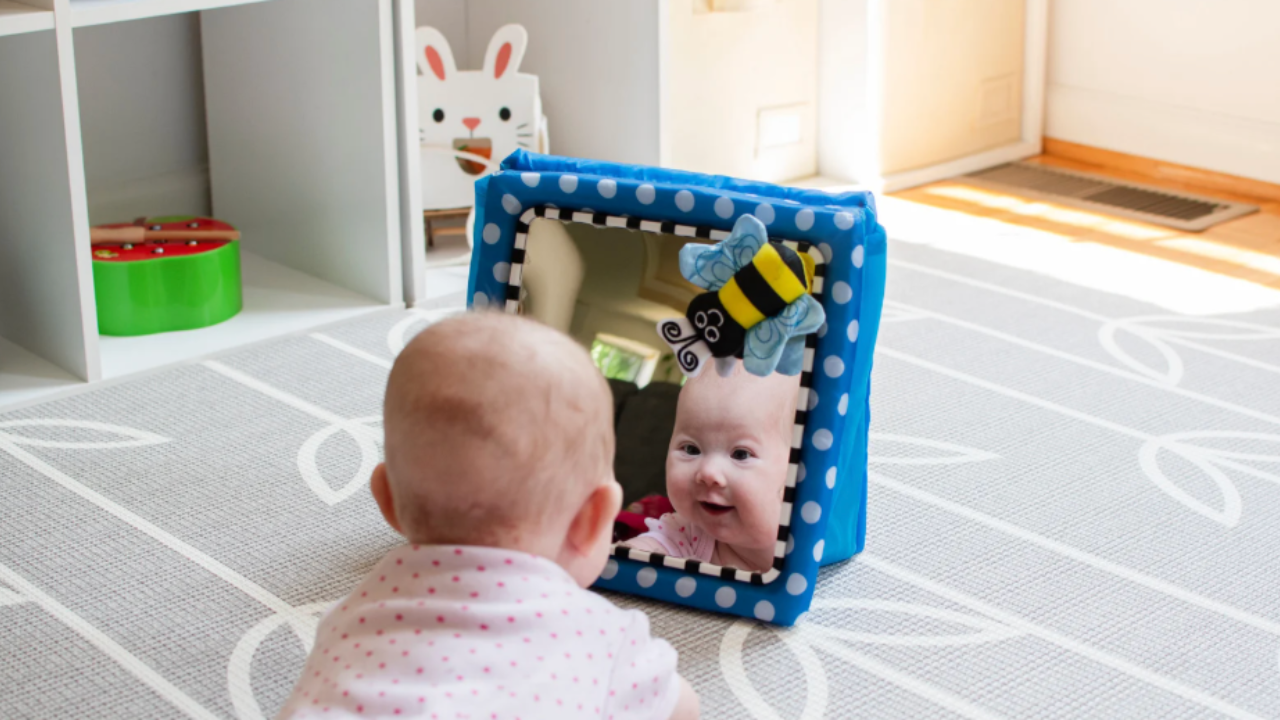The Benefits of Teaching Your Baby Independent Sleep
This blog post was written by Brooke Boruff, OTR/L and the Infant Insights sleep consultant.
Sleep. It’s a buzz word that most new parents dream of, yet feels so out of reach. Sleep is a crucial need for living, and it’s definitely something that may not happen very much in the first few months of your baby’s life. While every baby is unique, one common factor that can transform your family’s sleep experience is teaching your baby the art of independent sleep. This process, often referred to as infant sleep training, offers numerous benefits for both parents and babies.
Let’s dive into why infant sleep training can be a game-changer for your household.
Teaching Independent Sleep = Better Sleep for Everyone
When your baby learns to fall asleep independently through infant sleep training, they’re more likely to connect their sleep cycles without your intervention. That means fewer middle-of-the-night wake-ups for you and more sleep for everyone. And let’s face it… as parents, when we are well-rested, we are happier, more patient, and better equipped to handle the joys (and challenges) of parenting.
Learning Independent Sleep Is A Skill That Grows With Your Baby
One of the long-term benefits of infant sleep training is that it’s a skill your child can carry into toddlerhood and beyond. When my first born was around 3 months old, we finally caught our rhythm and established a routine that worked for the whole family. This routine helped him sleep throughout the night, and it is a routine we still continue (with some minor changes) to this day. He is almost 3 years old and his bedtime routine has supported his sleep skills through infancy and beyond. So, teaching your baby how to self-soothe (without using cry-it-out methods) and fall asleep independently fosters confidence and resilience which are things that benefit your child for years to come.
Independent Sleep Means Predictable Routines And Peaceful Days
When your baby can fall asleep independently thanks to infant sleep training, you can establish a predictable nap and bedtime schedule. Consistency not only supports your baby’s developing body clock but also brings a sense of calm and order to your day.
As adults, we all have some sort of routine we likely complete each day. For me, in the morning, I wake up, start the coffee, sit on the sofa before the kids wake and do my Bible study, and then start my day once the kids are awake. At night, we have dinner as a family, complete bath time, and then complete the kids’ bedtime routines.
We are all creatures of habit, and our babies are no different. Predictable routines help your baby thrive, which helps them regulate and have peaceful days.
Speaking for Regulation - Teaching Independent Sleep Encourages Emotional Regulation
Babies who learn to settle themselves to sleep often show improved emotional regulation. This is a key benefit of infant sleep training. By allowing your baby to practice self-soothing techniques, you’re helping them develop the tools they need to navigate frustration and self-calm in other situations.
When my youngest child was learning how to sleep independently, she began to use her sleep sack to soothe herself to sleep. Some babies use pacifiers, or may find their thumb, or maybe they shake their head back and forth, and all of these things are teaching our babies how to regulate their own emotions early on to support their sleep skills.
Independent Sleep Supports Easier Transitions
Whether it’s moving from a crib to a toddler bed or adjusting to a travel schedule, babies who’ve gone through infant sleep training tend to adapt more easily to new environments. They’re familiar with their bedtime routine and know how to drift off without much fuss, even when things change.
Additionally, if you have used a sound machine to support your baby’s sleep, your toddler may also find this helpful as they grow. In our home, we use the Hatch sound machine and in the morning when it is time to wake, we turn on the green light and chirping birds. This signals to my son that he can start his day and we have implemented this into our routine since he was a baby. Transitions have gone very smoothly for us thankfully, and I feel sure it’s due to supporting his independent sleep skills early in infancy.
Supporting Independent Sleep Skills Actually Leads To More Time for Connection
You may be surprised to find that infant sleep training can actually strengthen your bond with your baby.
When my daughter was a newborn, before she had independent sleep skills, it would take 2 hours + for her to settle at night. We found out later that she had a terrible dairy intolerance, but at times I would become so frustrated by my inability to get her down to sleep. When she finally learned independent sleep skills (and we prioritized her gut health), putting her down at night and completing her bedtime routine became one of my favorite parts of my day and that is still the case.
When sleep became less of a struggle for us, we were able to spend time together during the day too, focused on play, cuddles, and shared experiences, without the stress of a prolonged bedtime battle.
Supporting Your Baby’s Independent Sleep Skills Is Good for Development
Sleep is crucial for your baby’s brain and body development (Tham, Schneider, & Broekman, 2017). Babies who benefit from infant sleep training often get more consolidated rest, which supports everything from cognitive growth to physical milestones. A well-rested baby is also typically a happier baby because when they are awake they can take in the world around them in an excited way without feeling sleepy or lethargic.
If you are interested in supporting your baby’s independent sleep skills, here are some tips for infant sleep training:
Start with a Routine: A calming bedtime routine signals to your baby that it’s time to wind down. Consistency is key for successful infant sleep training.
Create a Sleep-Friendly Environment: Keep the room dark, quiet, and cool to encourage restful sleep. White noise can also enhance your infant sleep training efforts.
Give Them Time: During infant sleep training, it’s important to allow your baby a few moments to settle themselves before rushing in. Sometimes, they just need a little space to work it out.
Be Patient with Yourself and Your Baby: Like any skill, infant sleep training takes time to learn. Celebrate small wins along the way and remember that consistency is your best friend.
Learning how to support your baby’s sleep and follow an infant sleep training plan can feel daunting at first, but the benefits it brings to everyone in your family are well worth the effort. There’s no one-size-fits-all approach to infant sleep training, so at Infant Insights, we find a method that aligns with your family’s needs. With patience and practice, your baby can become an independent sleeper, giving your entire family the rest you deserve.
Here’s to the success of your infant sleep training journey! I am rooting for you!

Sources: Tham, Schneider, & Broekman, 2017. https://pmc.ncbi.nlm.nih.gov/articles/PMC5440010/









